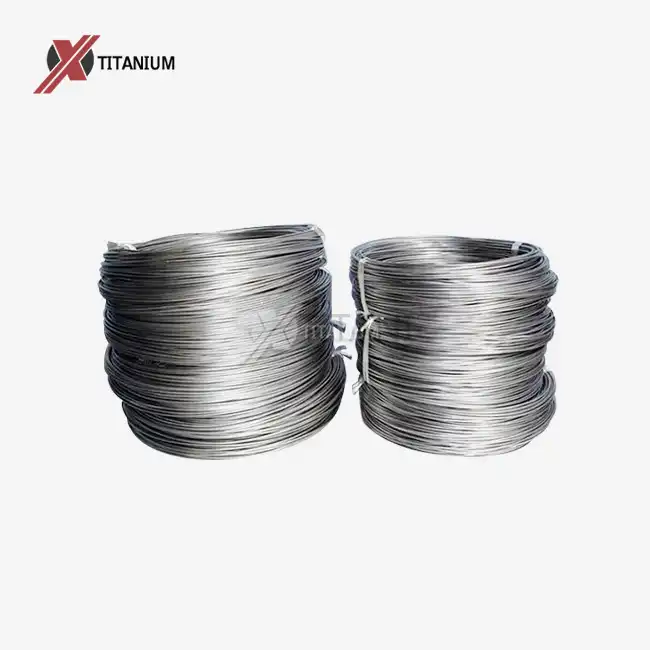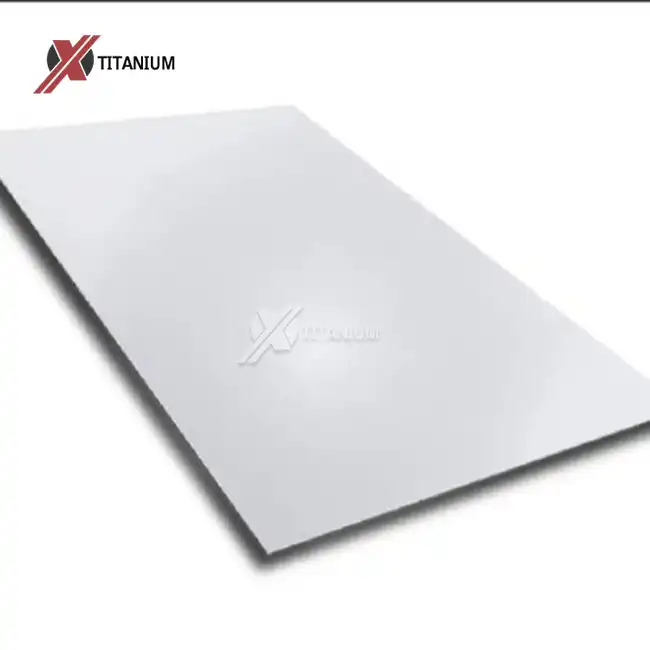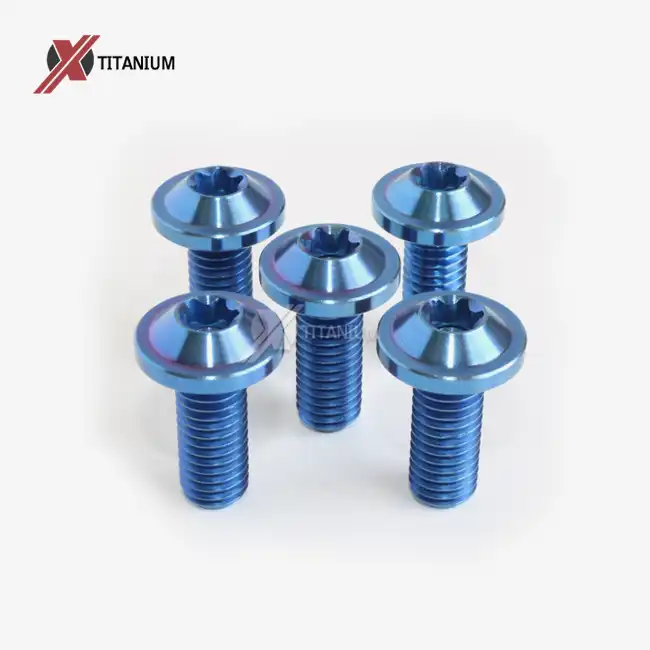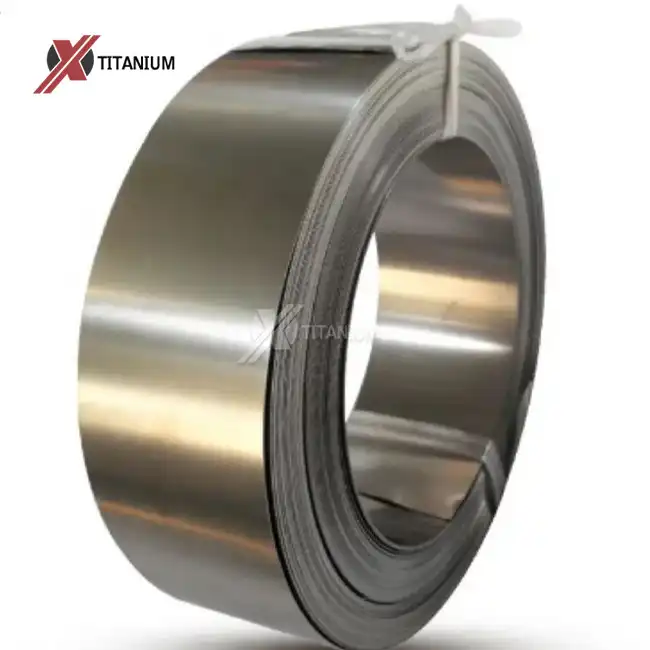Aerospace and Aviation: Soaring to New Heights
In the aerospace industry, titanium alloy wire plays a crucial role in enhancing aircraft performance and efficiency. Its exceptional strength-to-weight ratio makes it an ideal choice for numerous applications within this sector. Aircraft manufacturers utilize titanium alloy wire in the production of critical components that require both lightweight properties and high strength.
Structural Reinforcement
Titanium alloy wire is extensively used in the reinforcement of composite materials in aircraft structures. These composites, when fortified with titanium alloy wire, offer superior strength and durability while maintaining a low overall weight. This combination is particularly beneficial in reducing fuel consumption and increasing payload capacity, two critical factors in modern aviation.
Fastening Systems
The aerospace industry relies heavily on titanium alloy wire for fastening systems. These wires are used to create high-strength bolts, rivets, and other fasteners that can withstand the extreme conditions encountered during flight. The corrosion resistance of titanium alloy wire ensures that these fastening systems maintain their integrity over long periods, even when exposed to varying temperatures and atmospheric conditions.
Engine Components
Titanium alloy wire for sale is in high demand for the manufacturing of engine components. It is used in the production of compressor blades, turbine parts, and other critical engine elements. The wire's ability to maintain its strength at high temperatures makes it particularly suitable for these applications, where performance under extreme heat is paramount.
Medical Marvels: Titanium Alloy Wire in Healthcare
Its adoption across multiple medical fields has transformed both surgical practices and long-term patient outcomes. Unlike many other metals, titanium alloy wire maintains structural integrity inside the human body without causing adverse reactions. Its unique combination of strength, flexibility, and corrosion resistance allows for the creation of safe, reliable, and durable implants and devices that improve quality of life.
Orthopedic Implants
Titanium alloy wire has become a cornerstone material in orthopedic surgery due to its proven compatibility with human tissue and exceptional mechanical strength. It is commonly fabricated into bone screws, fixation plates, and structural rods that stabilize fractures. By integrating seamlessly with bone tissue, titanium alloy wire accelerates the healing process while minimizing complications such as implant rejection or loosening, ensuring reliable long-term recovery.
Dental Applications
In modern dentistry, titanium alloy wire plays a vital role in both corrective and restorative treatments. Orthodontic wires crafted from this material provide the necessary strength and flexibility for precise tooth movement during alignment procedures. Dental implants made with titanium alloy wire ensure long-lasting durability, as their ability to bond naturally with jawbone tissue provides stability, resistance to corrosion in saliva, and improved patient comfort over time
Cardiovascular Devices
The demanding requirements of cardiovascular medicine make titanium alloy wire an invaluable choice. It is widely used in the design of stents, heart valve supports, and pacemaker leads, where consistent performance and safety are crucial. Thanks to its non-reactive properties and endurance against body fluids, titanium alloy wire ensures devices remain reliable inside the bloodstream, reducing risks of failure and extending the lifespan of critical cardiovascular implants.
Industrial and Marine Applications: Harnessing Strength and Durability
The unique properties of titanium alloy wire make it invaluable in various industrial and marine applications, where extreme conditions demand exceptional material performance.
Chemical Processing Equipment
In the chemical industry, titanium alloy wire is used to manufacture equipment that can withstand corrosive environments. It is employed in the construction of heat exchangers, reaction vessels, and piping systems where resistance to chemical attack is crucial.
Offshore Oil and Gas
The offshore oil and gas industry relies on titanium alloy wire for various applications due to its corrosion resistance in saltwater environments. It is used in the fabrication of subsea components, risers, and other critical equipment exposed to harsh marine conditions.
Desalination Plants
Titanium alloy wire plays a significant role in desalination plants, where it is used in the construction of heat exchangers and other components exposed to seawater. Its resistance to saltwater corrosion ensures long-term reliability and efficiency in these critical water treatment facilities.
Sports Equipment
The sporting goods industry has also embraced titanium alloy wire for its strength and lightweight properties. It is used in the production of high-performance bicycle frames, golf club shafts, and tennis racket strings, offering athletes improved performance and durability.
Conclusion
Titanium alloy wire has proven to be an indispensable material across a wide range of industries, from aerospace and medical to industrial and marine applications. Its unique combination of strength, lightweight properties, corrosion resistance, and biocompatibility makes it a versatile solution for numerous challenging environments and applications. As technology continues to advance, the demand for titanium alloy wire is likely to grow, driving further innovations in its production and application. The continued development and refinement of titanium alloy wire will undoubtedly play a crucial role in shaping the future of various industries, enabling new possibilities and enhancing existing technologies.
At Baoji Chuanglian New Metal Material Co., Ltd., we are proud to offer high-quality titanium alloy wire that meets the diverse needs of our clients across multiple sectors. Our commitment to excellence and innovation ensures that our products meet the highest industry standards. If you're looking for reliable titanium alloy wire for your specific application, we invite you to explore our range of products and services. For more information or to discuss your requirements, please don't hesitate to contact us at info@cltifastener.com or djy6580@aliyun.com. Let us help you harness the power of titanium alloy wire for your next project.
FAQs
What are the key features of titanium alloy wire?
Titanium alloy wire offers high corrosion resistance, low density, and excellent thermal stability. It combines strength and durability with the advantages of alloying elements, making it ideal for various industrial applications.
What surface finishes are available for titanium alloy wire?
Titanium alloy wire can be finished with bright, polished, pickled, acid-cleaned, or sandblasted surfaces, depending on the specific requirements of the application.
What quality tests are performed on titanium alloy wire?
Quality tests for titanium alloy wire typically include hardness tests, bending tests, and hydrostatic tests to ensure the wire meets the required specifications and performance standards.
References
1. Smith, J. R., & Johnson, A. B. (2019). Titanium Alloys in Aerospace Applications: A Comprehensive Review. Journal of Aerospace Engineering, 32(4), 215-230.
2. Chen, L., & Wang, X. (2020). Advances in Titanium Alloy Wire for Medical Implants. Biomaterials Science, 8(12), 3352-3367.
3. Rodriguez, M. A., & Thompson, K. L. (2018). Corrosion Resistance of Titanium Alloy Wire in Marine Environments. Corrosion Science, 140, 66-78.
4. Lee, S. H., & Park, J. Y. (2021). Titanium Alloy Wire in Chemical Processing Equipment: Performance and Applications. Chemical Engineering Journal, 415, 128920.
5. Zhang, Y., & Liu, Q. (2022). Recent Developments in Titanium Alloy Wire Manufacturing Processes. Materials Today: Proceedings, 50, 1256-1265.


_1747364744942.webp)

